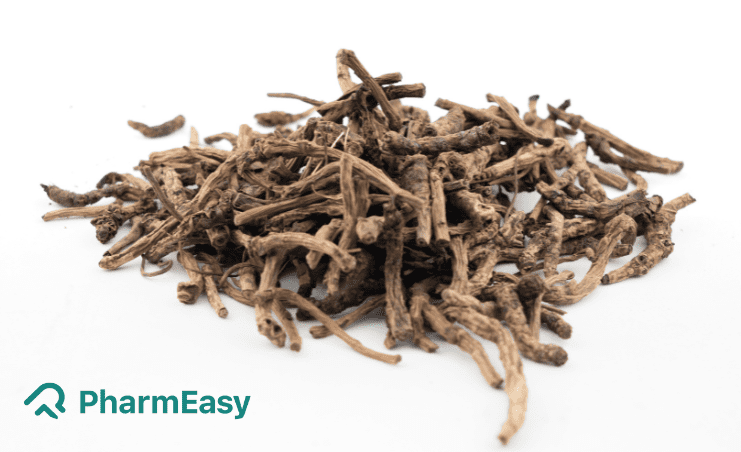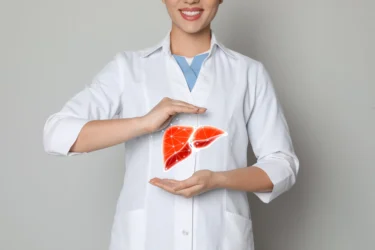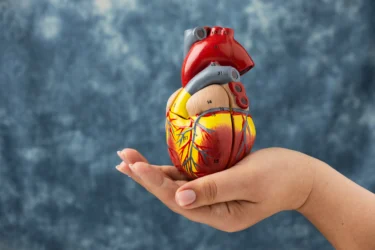Kutki: Uses, Benefits and Side Effects by Dr. Rajeev Singh
By Dr Rajeev Singh +2 more

Get,

to manage your symptom
Get your,


4 Cr+ families
benefitted

OTP sent to 9988776655



You’ve successfully subscribed to receive
doctor-approved tips on
Whatsapp

Get ready to feel your best.

Hi There,
Download the PharmEasy App now!!


Register to Avail the Offer
Send OTPBy continuing, you agree with our Privacy Policy and Terms and Conditions

Hi There,
Sign up on PharmEasy now!!
Trusted by 4 crore+ families

OTP sent to 9988776655



You have unlocked 25% off on medicines




Code: NU25
By Dr Rajeev Singh +2 more
Table of Contents
With rising health awareness, people around the world are exploring foods with wonderful nutrients and health benefits. A millet that has gained popularity recently is Kutki. It is scientifically known as Picrorhiza kurroa Royle ex. Benth. It belongs to the family Plantaginaceae. It is mainly grown at 3000-5000 m. above sea level in the Himalayan region of India, Nepal, Pakistan, western China, Tibet and Burma1.
Kutki is a small annual herb with a long root, creeping stems and oval leaves. The plant is harvested from October to December1. It is known by different names in different languages and regions. Kutki in English is called hellebore, kutki in Hindi is called as tikta, kaurohini, kavi, tiktarohini, kauka, sutiktaka, and rohini, kutki in Tamil is katuka rohini, kadugurohini, and katuku rohini whereas kutki in Malayalam is katuka rohini and kaduk rohini2.

In our article, we have described the roots of kutki. These are bitter to taste and their extract is used for medicinal purposes. Kutki herb benefits are recorded in the Ayurveda Samhitas1. Keep scrolling down to read about the kutki benefits and side effects!
Friendly Reminder: The information shared here is for educational purposes only and the reader should consult a registered medical practitioner before implementing any changes to their health routine.
Did you know?
Kutki has many phytochemicals. A few of the chemical constituents of kutki are as follows1:
Although more research is required to understand the nutritional value of kutki, according to B & B organics, the nutritional value of kutki is as follows:
According to my experience, to get maximum health benefits from Kutki, you must take them in certain dosages. For example, for fatty liver, you must take Kutki root powder (2 to 3 gms) with warm water two times every day, at least for three months to see the effects. However, you must avoid self-medication and always opt for medical advice before its use5.
Dr. Siddharth Gupta, B.A.M.S M.D (Ayu)
Kutki might have the following properties1:
The existing studies show the following kutki health benefits:

Blood sugar levels in diabetes are high that cause damage to the eyes, bones, heart and other organs. A study2 by Joy et al. in 1999 on rats showed that extracts from kutki can lower blood sugar levels. It also showed that it could reduce the damage caused by a chemical called alloxan in diabetes, which may prevent further complications of diabetes. The study proves that kutki extracts might be helpful for people with diabetes. However, before taking it, you should consult a doctor and understand the benefits of kutki powder for diabetes.

Obesity is an inflammatory and metabolic disorder that occurs due to excess accumulation of fat in the body tissue that releases various inflammatory mediators that can cause cellular damage. A study1 by Almeleebia et al. in 2022 showed that the root extracts of kutki can reduce the levels of inflammatory mediators involved in inflammatory processes. Therefore, kutki might help with inflammation and inflammatory diseases, but you should always consult a doctor regarding kutki benefits.

Bacteria and fungi can enter the body and release toxins that can cause infection in the eyes, nose, skin, lungs and other body organs. A study1 by Almeleebia et al. in 2022 showed that the phytochemicals found in the kutki extracts could inhibit the growth of bacteria and fungi in the body and may help in managing bacterial and fungal infections. However, it is advised not to self-medicate. You should consult the doctor regarding kutki powder benefits and seek treatment accordingly.

Cancer is the second leading cause of death worldwide. A study3 by Rajkumar et al. in 2011 found that kutki extracts are rich in flavonoids, phenolic acids, and antioxidants that can stimulate the cell death process in cancerous cells of the breast, liver, and prostate cancer. The study shows that kutki might help in slowing the progression of cancer. However, if you suspect cancer, do not self-medicate. Consult your doctor regarding the benefits of kutki and seek treatment accordingly.

The liver is a major organ that plays a vital role in the absorption of fat, synthesis of hormones and detoxification of the body. A study1 by Almeleebia et al. in 2022 showed that kutki benefits in liver-related issues such as jaundice, recurrent fever and viral hepatitis. Its extracts have kutkin, which protects the liver by suppressing substances that can harm liver health. The phytochemicals in kutki extracts also help in reducing the liver toxicity caused by alcohol. Although more research is required to understand the benefits of kutki for liver cirrhosis, the study shows that kutki might help manage liver diseases. However, you should not self-medicate with it and consult the doctor regarding kutki benefits for the liver.

When stomach or intestinal linings get damaged because of the acid present, it causes stomach or intestinal ulcers. A study1 by Almeleebia et al. in 2022 showed that kutki root extracts have a protective effect on the stomach. It can reduce ulcers caused by a medicine named Indomethacin. The extract promotes mucus formation, which protects the stomach and intestinal lining from ulcer formation. It also lowers the production of chemicals involved in ulcer formation. The study shows that kutki might help those struggling with ulcers1. However, you should consult with a doctor instead of self-medicating.

Let’s see some more kutki medicinal uses1:
Although with the advancement in knowledge and technology, new research methods are employed to study the health benefits of kutki, they still need to be improved, and further studies are required.
I would suggest following the dosage of Kutki powder for its benefits for fever, high cholesterol, gastritis, and hepatitis. For fever, you must boil two gms of Kutki powder in 100 ml of water till it reduces to 1/4th of its initial quantity. Similarly, two gms of Katuki powder mixed with sugar after a meal two times a day can be beneficial in gastritis. For high cholesterol and hepatitis, Kutki powder should be mixed with Haridra powder and Bhumya Malaki, respectively.
Dr. Rajeev Singh, BAMS
Kutki can be used in the following ways:
You must consult a qualified doctor before taking any herbal supplements. Do not discontinue or replace an ongoing treatment of modern medicine with an ayurvedic/herbal preparation without consulting a qualified doctor.
Consuming kutki formulations in healthy amounts is considered safe. However, a study by Almeleebia et al. in 2022 showed that the highest safe dose of kutki in a day is 2000mg/kg, any dose above it may have noticeable side effects.
Although there are insufficient studies on humans to study the kutki powder side effects, it is best to consult a doctor if you notice any unusual symptoms.
Also Read: Dark Chocolate: Uses, Benefits, Side Effects By Dr. Smita Barode
A few of the important precautions that should be taken when using kutki are as follows:
The important contraindications where the use of Kutki is not advised:
Also Read: 8 Effective Herbs To Lower Blood Sugar Levels!
There is not enough evidence on the interaction of the kutki extracts with other drugs. Further studies are required. Therefore, you must consult your doctor before consuming kutki along with your prescribed medication.
Also Read: Ashoka Tree: Uses, Benefits, Side Effects and More!
Kutki churna benefits in constipation, skin problems, jaundice, heart problem, allergy, digestion, obesity, and breathing problems.
Kutki is also known as katuka, Katuki, Kuru, Kurri, Katuko, Katukarogani, Kadu, Kutka, HuHuang Lian, Hellbore and Picrorhiza.
Although more research is required to understand the benefits of kutki for fatty liver, there are many kutki uses in ayurveda for managing liver diseases. Kutki benefits in managing viral hepatitis, recurrent fever, and alcohol-induced fatty liver.
Kutki formulations should be stored at 50 degrees for three months. Additionally, it should not be consumed during pregnancy. It is advised that children, the elderly and breastfeeding mothers should consult a doctor regarding kutki side effects before consuming it.
Kutki powder should not be consumed by pregnant women. It can cause serious side effects in the mother as well as the unborn baby. So, it is best avoided in any form.
Disclaimer: The information provided here is for educational/awareness purposes only and is not intended to be a substitute for medical treatment by a healthcare professional and should not be relied upon to diagnose or treat any medical condition. The reader should consult a registered medical practitioner to determine the appropriateness of the information and before consuming any medication. PharmEasy does not provide any guarantee or warranty (express or implied) regarding the accuracy, adequacy, completeness, legality, reliability or usefulness of the information; and disclaims any liability arising thereof.
Links and product recommendations in the information provided here are advertisements of third-party products available on the website. PharmEasy does not make any representation of the accuracy or suitability of such products/services. Advertisements do not influence the editorial decisions or content. The information in this blog is subject to change without notice. The authors and administrators reserve the right to modify, add, or remove content without notification. It is your responsibility to review this disclaimer regularly for any changes.
Comments

Leave your comment...
You may also like
Comments